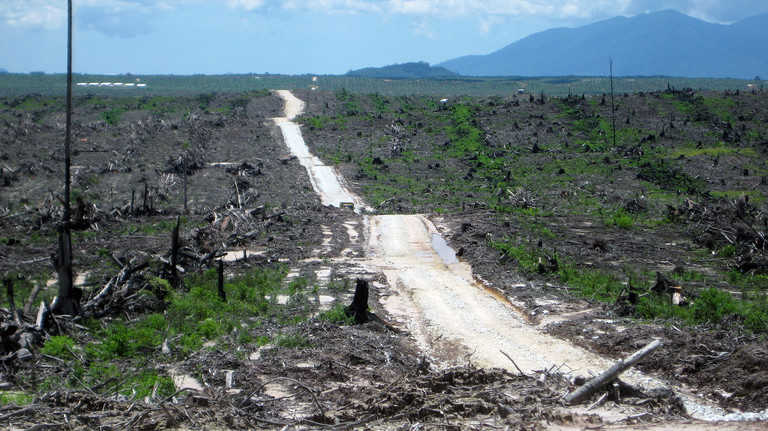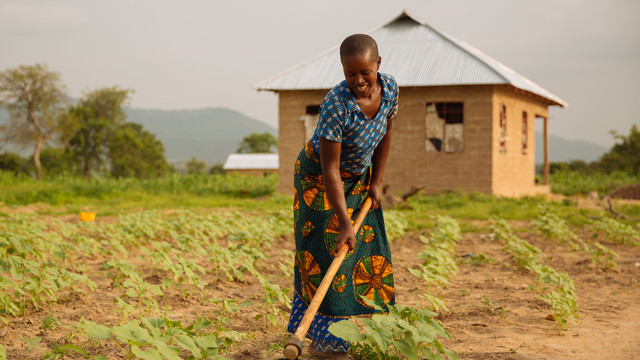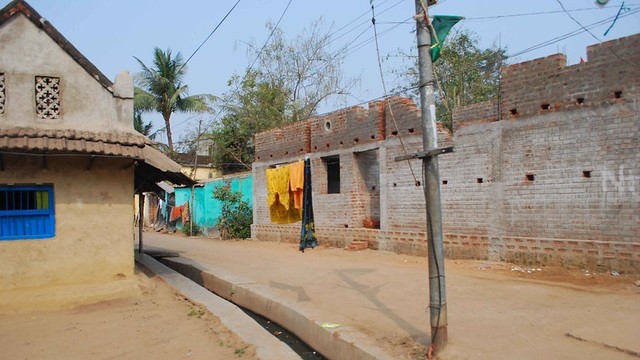How investment treaties protect 'land grab' deals
New research examining the geographical coverage of international investment treaties raises concern about how they might affect public action to address 'land grabbing'.


Land cleared for palm oil production, Indonesia (Photo: Rainforest Action Network, Creative Commons via Flickr)
It is increasingly clear that the international legal arrangements governing the global economy can have direct implications for land governance.
Take a recent case from Ethiopia, a country where large-scale land deals for agribusiness investments attracted high levels of public attention. In December, the government terminated a 100,000-hectare farmland lease with an Indian investor, alleging lack of progress with land development.
A few weeks ago, the Indian investor was quoted as saying he was "prepared to seek international arbitration on the matter", claiming that the cancellation violated a bilateral treaty on the protection of foreign investment that the governments of India and Ethiopia signed in 2007.
Whether these statements will translate into arbitration proceedings remains to be seen. The investment treaty between Ethiopia and India is 'not in force' according to a United Nations global database of investment treaties, although this has been questioned. But this wielding of an international investment treaty in a land-related dispute reflects wider trends.
How investment treaties can affect land rights
In recent years, investors have relied on investment treaties to bring a growing number of cases against states. In some cases investors have challenged the legality of state conduct linked to land governance, including land reform programmes and public action to terminate land transactions, seeking significant amounts in compensation.
Investors have also wielded investment treaties to challenge land reform before national courts, while governments have invoked them to resist indigenous peoples' restitution claims targeting land owned by foreign investors.
Investment treaties are primarily aimed at protecting foreign investment against adverse state conduct, establishing standards for how investors should be treated. They allow investors to seek compensation for breaches of these standards by bringing claims to international arbitral tribunals.
In some respects, investment treaties reinforce international policy guidance setting parameters for quality in land governance and reform processes.
But as I argued in this recent report, investment treaties can also have important implications for who owns or has access to land. Indeed, these treaties could be used to protect foreign investors' landholdings against the legitimate land claims of indigenous peoples, small-scale rural producers, the landless and more generally poor and marginalised groups.
By increasing the cost of land redistribution, restitution, tenure reform, or of public action to address 'land grabbing', investment treaties could create tensions with progressive land policies – including measures to implement international guidance on responsible land governance.
How 'land grab' deals and investment treaties intersect
Information about investor-state arbitration is not always in the public domain. So it is impossible to know whether the recent wave of large-scale land deals for agribusiness investments has yet resulted in international proceedings. There are currently no publicly known arbitrations.
Several factors mean states face a greater risk of potential arbitration claims for land-related investment disputes, including:
- The large number of land deals for agribusiness investments signed in a relatively short time – some 1,000 contracts worldwide since 2000, according to one global database
- The poor quality of some of these contracts (as I highlighted in an earlier report), which allows diverging interpretations and renegotiation
- The commercial impacts of improved international standards on land governance and responsible investment, and of vocal calls to terminate or renegotiate deals, or to tighten up their social, environmental and economic parameters, and
- Many deals concern countries where land governance is weak, so public authorities may lack the capacity to act in ways that comply with investment treaties.
As standards are improved and bad contracts terminated, there are questions as to who should bear the costs. In practice, much depends on how many 'land grab' deals are indeed protected by investment treaties.
'Land grabbing' in the shadow of investment treaties
A new report measures the geographic extent to which investment treaties protect investments made as part of the recent wave of large-scale land deals for plantation agriculture in low and middle-income countries. The report looks at three levels:
- A global-level quantitative analysis based on online databases of land deals and of investment treaties
- A more in-depth investigation of the corporate structures relating to a subset of land deals for which contractual documentation is available, and
- An analysis of publicly known agriculture-related investor-state arbitrations.
The findings indicate that the vast majority of the farmland deals concluded in low and middle-income countries since 2000 are protected by at least one investment treaty.
Limited publicly available data mean that this analysis remains inevitably preliminary. But the findings are corroborated both by the global-level quantitative analysis (see figure 1) and by the more in-depth investigation of a subset of land deals.

The fact that most land deals are protected by an investment treaty does not necessarily mean that the treaty was the reason for the investment. Multiple factors affect agribusiness investment decisions and location choices.
But the extensive reach of investment treaties does mean that state exposure to the risk of arbitration is relevant in a wide range of places.
Moving forward
More research is needed to shed light on the extent to which investors rely on these treaties to challenge land governance measures, and with what results. This would include cases where investors invoke investment treaties in the context of negotiations with the government, rather than going to arbitration.
Overall, however, the findings highlight the relevance of international investment treaties to the recent wave of 'land grab' deals. In a globalised world, land governance is increasingly shaped by international as well as national regulation. There is a need for more integrated approaches that consider how different sets of rights at local to global levels interact and affect one another.
Securing local land rights requires concerted action at local to global levels: interventions at the grassroots are unlikely to achieve results without addressing the international dimensions.
IIED's revised and updated handbook on foreign investment, law and sustainable development provides guidance to governments and advocates on how to harness multiple areas of law. We must make these connections if we are to secure the rights of indigenous and local communities in the face of commercial pressures on land.
Resources
Land rights and investment treaties: exploring the interface, Lorenzo Cotula (2015) IIED Report/paper
Land deals and investment treaties: visualising the interface, Lorenzo Cotula, Thierry Berger (2015), IIED Report/paper
Foreign investment, law and sustainable development: a handbook on agriculture and extractive industries, (2nd Ed), Lorenzo Cotula (2016), IIED Issue paper




